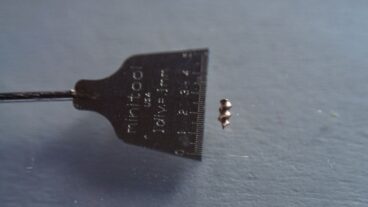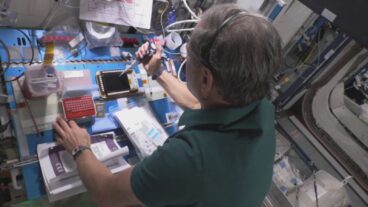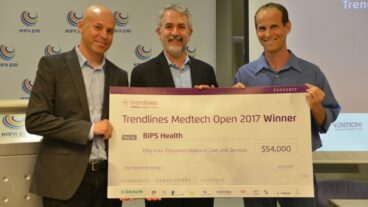Over the last few years, the landscape of the medical industry has changed due to the COVID-19 pandemic. Overcrowded hospitals and doctors’ offices have led to technological advancements that allow patients to receive medical attention from the comfort of their couch! While many medical appointments have become virtual, med-tech, or medical technology, looks to improve people’s health by preventing, diagnosing, monitoring and treating diseases, illnesses, or medical conditions through systems of telemedicine/telehealth. The pandemic has accelerated changes in the telehealth industry. Medical advancements are beginning to better suit the living situations of those all around the world, kick-started by the pandemic’s highlighting of the need for medical technological advancements.
Of course, not all med-tech advancements have been the result of COVID-19. Many that came before have been able to lay the groundwork for future innovations. Years before the pandemic, the med-tech field took a large leap forward with the introduction of therapeutic contact lenses. EyeYon Medical is a med-tech company that works on therapeutic contact lenses for treating corneal edema; this technology recently received approval from The U.S. Food and Drug Administration (FDA). Additionally, SpotLight CT is a high-performance cardiovascular-dedicated CT scan that provides a complete cardiac imaging solution, at both a lower cost and higher performance than conventional full-body CT scans and equipment. Invented by Arineta, the company says its aim for the technology is to become a vital asset in the diagnosis and treatment of cardiac patients. Both companies are startups located in Israel, aiming to help the medical world where patients need it most. These medical innovations were released and approved years before the world would be facing a global pandemic – better preparing us and the med-tech industry for the world that was to come.
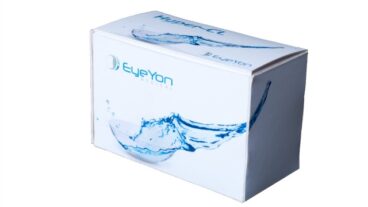
Additionally, TytoCare provides remote examination and telehealth platforms that examine the heart, lungs, skin, throat and ears, while providing temperature readings. The platform enables users to list their symptoms, and then receive feedback regarding their ailment and the proper steps that should follow. The FDA approved TytoCare’s smart stethoscope, a tool the platform operates on that is connected to an iPhone or iPad application. Patients can also choose to speak to health care professionals remotely, with the goal of making healthcare visits and exams accommodating, comfortable and price-friendly.
Other Israeli startups furthering the med-tech industry today include:
- BATM, which sells rapid COVID test kits that are equatable to PCR tests and can give results in up to 50 minutes.
- MyndYou, which created a robot called My Eleanor, a service robot programmed to assess symptoms and risk and give guidance when patients are sick with COVID. MyndYou can detect changes in illness with advanced voice analytics.
- Kamada is developing a polyclonal immunoglobulin treatment for people very sick with COVID, using purified blood and plasma to help them recover. Kamada previously produced serums against rabies and Zika.
- TransAlgae is developing an oral algae-based COVID vaccine in pill form.
- XRHealth has special therapeutic apps using virtual reality headsets for patients in quarantine. Options are stress and/or anxiety support, cognitive and/or physical exercise, support groups and two-way interaction with healthcare providers.
Moreover, an Israeli company called Theranica created Nerivio, a therapeutic wearable treatment for migraine pain. Nerivio uses remote electrical neuromodulation to treat migraine headaches and symptoms. The Nerivio app, available for iPhone and Android, is personalized, able to track symptoms and treatments from the device. The device is FDA approved and hopes to make an even bigger splash than it already has, after winning the 2021 “Best New Technology Solution for Pain Management” award.

Although not directly related to COVID-19 related medical innovations, the Sheba Medical Center demonstrates relentless dedication to their patients and innovative practices by adapting to ways of the world to keep patients safe and continue treatment, whether it be through missile attacks, a viral pandemic, or “another day at the office”. In conjunction with Identi Medical, Sheba Medical Center has implemented a computer-vision inventory tracking system that has been able to reduce the cost of excess inventory by between $2 million and $3 million. If Snap & Go were implemented in US hospitals, it could help reduce about $8 billion lost annually due to poor inventory tracking.
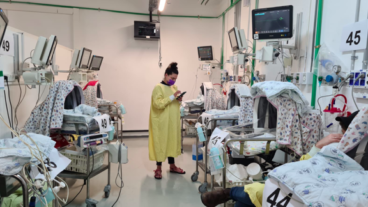
Ultimately, the COVID-19 pandemic has initiated a change in the medical industry. Telehealth platforms and med-tech innovations have taken great strides to better suit the world we live in. Israeli startups are leading the way down this road of discovery and progression. The advancements made are guiding us to a safer world, where medical aid and care can be more accessible, affordable, and connected. While it is an ever-growing industry and field, med-tech and telehealth platforms are quintessential aspects of healthcare, and society, working to make the world a better place. Of course, there are many more medical advancements coming out of Israel, specifically Israeli startups, that were not mentioned in the article, but you can learn more by checking out the health section on israel21c.org!
Groundbreaking Israel content is developed by ISRAEL21c’s Digital Ambassadors.
Alison Comite is a student at the University of Pennsylvania. Find her on LinkedIn here.
Zachary Gold is a student at Colgate University. Find him on LinkedIn here.





